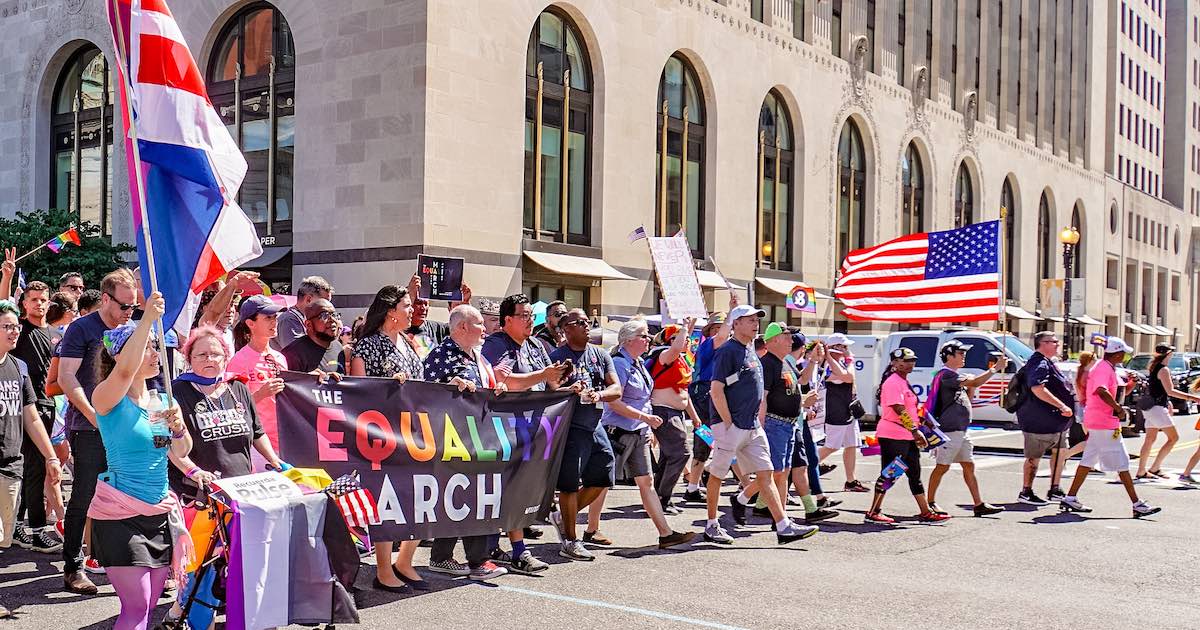
20 Jun 2023 Human Rights Campaign Should Declare a State of Emergency for Itself, Not for LGBTQ People
The Human Rights Campaign (HRC) has declared a state of emergency for people who identify as LGBTQ+, but Free Enterprise Project Director Scott Shepard assures anyone alarmed by that warning that “gay people in America are not at any higher risk than anyone else in America.”
Rather, Scott argues, HRC itself is in a state of emergency.
In a column for RealClearMarkets, Scott reminds us that HRC used to assure skeptical Americans that legalizing gay marriage wouldn’t lead down a slippery slope. Yet of course once the gay marriage goal was realized, HRC “pretty much immediately set about giving the lie to its own assertions.”
HRC has recently been up to mischief such as misnaming Florida’s anti-grooming Florida Parental Rights in Education Act as the “don’t say gay” bill (“despite it making no mention whatever about gay, but merely stopped teachers of primary school students from initiating classroom discussions about sex and sexuality, and thereby confusing them and stealing their innocence,” notes Scott).
HRC has also been behind efforts to require the inclusion of biological males in sports contests previously limited to women and girls, and has been vehemently opposing bills that want to protect impressionable young children from life-altering gender transition surgeries.
One of HRC’s most successful achievements has been its ability to turn American corporations into HRC pawns. Scott explains, however, that what was once HRC’s crown jewel has perhaps become its undoing:
HRC has had a good grift going. Years ago, it established its Corporate Equality Index (CEI) and began pressuring corporations to participate in it, fill out its underlying survey and then tout their scores. The index started off innocuously enough, by most lights, looking to see that gay employees got the same insurance, sick-leave policy and other benefits for their civil partners (or whatever the then-current appellation) as married couples got for their spouses.
But as gay rights successes mounted, HRC shifted the CEI goal posts.
Now, in order to get a perfect score on the CEI (as most major American corporations have in recent years), there can be no question merely of treating gay employees equally. Rather, a perfect score requires companies to take the hardest-left position possible on a whole series of the hottest-button political and social issues facing the country, to do so publicly and to spend shareholder assets supporting those positions and the organizations that support them. Hell, HRC “stripped” Anheuser Busch of its perfect score because, having cost itself vast revenue and market share by hiring a brand director that hated Bud drinkers and by teaming up with Dylan Mulvaney to stick it those customers’ collective eye, it didn’t then hold the trans-above-all line until it hit the Chapter 11 wall.
In other words, getting a perfect score on the CEI constitutes a proud admission by corporate executives that they have abandoned their fiduciary duties to their shareholders and are spending their money to take profoundly partisan stands on issues that have nothing whatever to do with a well-run business at the certain expense of offending huge swathes of customers to the extent the efforts become public.
A corporation’s perfect CEI score is pretty much a prima facie case for shareholder-derivative plaintiffs all by itself, and should soon starting drawing such plaintiffs the way visions of unbridled power draw certain investment-house and giant-bank CEOs….
Now that the CEI has become the mark of Cain, it and its sponsoring organization are likely to become fairly radioactive fairly quickly. That’s an emergency for HRC.
Read Scott’s entire column here.




